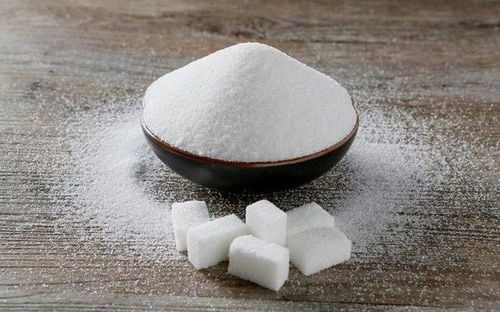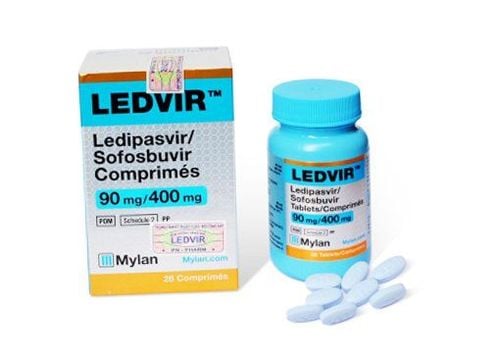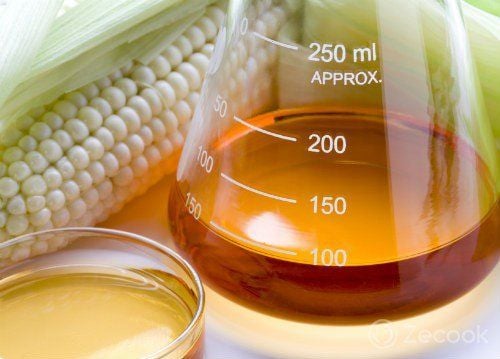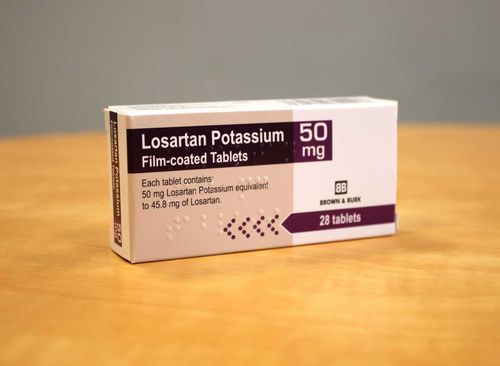This is an automatically translated article.
Fructose is a type of sugar found in many fruits and vegetables, and also in honey. Fructose is used to sweeten a number of commercially available foods, but this sweetener is generally not recommended for people with diabetes. Because of the possible negative effects on blood sugar when consumed in excess.1. What is fructose?
Along with glucose, fructose is one of the two main components of added sugars in foods. Some health professionals believe that fructose is the worse kind, especially when consumed in excess. Are these concerns supported by science? Fructose is a simple sugar that makes up 50% of the mass in common table sugar (sucrose). Daily sugar also includes glucose, which is the main source of energy for the body's cells. However, fructose needs to be converted into glucose by the liver before it can be used by the body.
Fructose is also found in different types of sugary sweeteners such as high-fructose corn syrup and agave syrup.
If sugar is one of the main ingredients of any product, you can be sure that the product is high in fructose.
Before knowing how to mass-produce refined sugar, people rarely consumed it in large quantities. In fact, many sweet fruits and vegetables contain the sugar fructose and they provide relatively low amounts.
Some people don't absorb the full amount of fructose they eat. This condition, known as fructose malabsorption, is characterized by signs of excessive gas or bloating and other digestive discomforts.
In these cases, fructose acts as a carbohydrate, is fermentable and is classified as FODMAP. Unlike glucose, fructose lowers blood sugar. As a result, some health professionals recommend fructose as a "safe" sweetener for people with type 2 diabetes.
In a nutshell, fructose is a common sugar that makes up about 50% of common table sugar, and high-fructose corn syrup. Scientists are concerned that eating too much fructose can cause metabolic disorders.
2. Why is fructose harmful?
Glucose and fructose are metabolized by the body in very different ways. Every cell in the body can use glucose as energy while the liver is the only organ that can metabolize a significant amount of fructose. When a diet is high in calories and fructose, the liver becomes overloaded and begins to convert fructose into fat. Therefore, many scientists believe that consuming too much fructose can be the main cause of many of today's most dangerous diseases. These include obesity, type II diabetes, heart disease, and even cancer.

Đường fructose sử dụng sai cách có thể gây hại cho cơ thể
However, more medical evidence is needed on these effects on human health. Researchers are still debating the extent to which fructose contributes to these disorders.
In summary, many medical experts have confirmed that too much fructose is the main cause of metabolic disorders.
3. What are the harmful effects of fructose when consumed in excess?
While too much fructose is certainly unhealthy, its specific health effects are controversial.
However, there is a substantial body of evidence to support these concerns. High use of fructose as added sugar in some foods can:
Disturb the lipid composition of your blood. Fructose can increase VLDL cholesterol levels, leading to the accumulation of fat around the organs, also known as visceral fat, and increasing the chance of heart disease. Increased uric acid, which causes gout and high blood pressure. Causes fat deposition in the liver, potentially leading to nonalcoholic fatty liver disease. Causes insulin resistance, which can lead to obesity and type II diabetes. Fructose does not suppress appetite as effectively as glucose. Therefore, may promote overeating. Consuming too much fructose can cause leptin resistance, which messes with fat levels in the body and contributes to obesity. Note that not all of these have been demonstrated in controlled studies. More research is needed to paint a clearer picture in the years to come.
In summary, many studies suggest that high fructose intake may contribute to chronic diseases in humans.

Đường fructose dùng sai cách có thể là nguyên nhân gây bệnh huyết áp cao
4. Fructose from added sugars is harmful to the body, while fructose in fruit is not
It is important to realize that all of this does not apply to the whole fruit. Fruits aren't just bags of water high in fructose, they're also low-calorie and high-fiber foods.
They are unlikely to be consumed in excess and it would be necessary to eat very large amounts to reach harmful levels of fructose.
In general, fruit is a low source of dietary fructose compared to foods containing added sugars. The harmful effects of fructose apply to a Western diet that provides excess calories and sugar. It does not apply to natural sugars found in fruits and vegetables.
The above information has explained to you clearly what fructose is, so that you can consider and make appropriate choices in your daily diet.
Customers can regularly visit Vinmec International General Hospital website to get more good information about health and nutrition suitable for each age.
Please dial HOTLINE for more information or register for an appointment HERE. Download MyVinmec app to make appointments faster and to manage your bookings easily.
Reference source: healthline.com - webmd.com












